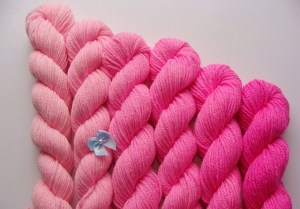On creative sustenance: the lover as muse.
It’s cold. the sun is a chilled blancmange in the sky and the beach’s seaweed leaves its slimy echo on the imprint of my feet. Here in Penzance, twenty degrees is cause for celebration — a proper beach day. It’s nothing shy of a miracle to my Canadian brain, so used to the only heat-related fuss being a worry of suffocating in the metro or breaking out in sunstroke. It’s a different cycle of concerns.
I don’t mind. I’m as in love with life as I am discomfited by it. It helps that I’m used to this place where sea routinely overflows the promenade’s concrete lip to wrap the poorly-isolated cottages in its frigid embrace. Where seagulls cry out from the eaves of buildings patched with modern embellishment to hide the battle scars left by bomber planes.
It’s cold, but I’m sixteen. At this age, cold is not the absence of warmth; it’s the presence of the unknown. It’s the beginning of the hero’s arc — the call to adventure, which pulsates and propels.
I am hungry inside. I don’t know it at the time, but my desperation for love is more than just that. I need a something to curl my mind around, to squeeze like cheesecloth. I long to be a builder.
My appetite only grows when I meet James, a handsome musician to whom charm is more first nature than second. He’s a year older than me, with curly brown hair and a cheeky smile, like an overgrown cherub from a Titian painting.
After meeting at a friend’s gathering, we make arrangements for a rendezvous. He waves at me across Market Jew Street. It’s the onlymain street in town. His mandolin strap sits so tightly across his paisley dress-shirt, it may as well be fused to his flesh. James suggests we swing by “The Bus Stop,” to get some Rizla. Thinking “rizla” a slang term for ice cream, I happily agree.
“The Bus Stop,” turns out to be a store supplying hippie chic clothing and bong paraphernalia. Sitting on a bench outside, I tuck my arms around my uncovered knees to warm them. James licks the crisp edges of a sheet of rolling paper. My belly flip flops when he passes me a joint. “Joint” ceases to exist as a set of letters in my mind. I cough away watering eyes and file the sensations away for later use. Earthy smell. Bitter taste. Pain of alveoli withering lung-deep. We discuss music and the vastness of the world. I fantasize about all the stories I could write about him. He has quickly been crowned my muse.
James plays mandolin. Later, I discover he knows my grandmother. When she greets us at her door, recognition crinkles her eyes into crescent moons. James is the young man she had spoken to, months ago, when I told her I was spending summer vacation in England.
My granddaughter just received a mandolin for her birthday, she says.
He replies, sweet. I’d be happy to show her the ropes.
She said he could be my mentor — someone to initiate me into the mysteries of the mandolin.
And man, can he play that thing. His fingers are thick with calluses. I feel the rough pads against my skin one night, on a dilapidated couch the green of overcooked French beans, the cracked leather biting into my ass, the whole house asleep around us.
In the evenings I cook supper while James and my grandmother discuss country music. They throw around names I’ve never heard before as if discussing friends who couldn’t be there. Kris Kristofferson, the Carter family, Gillian Welch, Bill Monroe. These names make me feel as much a virgin as I was before James taught me how to coax melody from my mandolin’s dissonant double strings.
One evening, I make summer pudding. My browser history attests to the research I’ve done on famous bluegrass bands, scattered among the various recipes I’ve vetted for the night’s dessert. I cut the crusts from white bread, squish it into a glass bowl, then tip stewed berries to fill its basin. The purple juice stains the white of the bread.
I am silent while we eat. Not from choice; even with my new lexicon, I don’t dare make a sound. James stains my heart, potent as crushed berries.
A few weeks later, I return to Montreal. There’s a lack, a tangible absence mitigated only by my realization that pain is a synonym for “growth.” I prickle with the fervor of ignited passion.
I miss James. To feel closer to him, I read Johnny Cash’s biography. I learn all his songs with June Carter so I know the harmonies that complement the gravelly, male melody. I write James letters, even though I know nothing will come of it. I play my mandolin. I jot down song lyrics, then narratives. Most of my stories are too egotistical, too blinded by melodrama, too close, to be effective.
All the protagonists are women, barely sixteen, on vacation in Europe. They are all too quiet. Even when the love interests are tall, with chiseled bone structure more like the Grim Reaper than any angel, with beady eyes the antithesis of his blue ones, all of them are James.
I cry a lot, but it’s worth it. Even though nothing comes of our crossing, it’s made me abyssopelagic. I dive to depths within my soul I didn’t think I was capable of harnessing, and return, my hands heavy with nacreous orbs.
Sixteen is the best age to be vibrantly miserable.
As I get older, James fades from my life. So does my inspiration, but that’s alright. The crown is passed along to the next in line. Joseph rents out a room in my heart for most of my eighteenth year. There’s Derek, the American tourist I have a fling with at nineteen. Miguel, my first proper boyfriend, whose love lasts us both almost five years. I channel my emotions, to use the fodder as fuel for what I write. My muses keep me well-fed.
I learn many things in the coming years. I learn to filter the word “just” out of my vocabulary as much as possible, so I don’t begin a statement justifying my right to speak. When my grandmother has a stroke, I discover the role of caregiver amounts to much more than pushing a wheelchair and preparing soup. I learn that fractures such as “hairline,” “compound,” “simple,” and “pathologic” refer to heart as well as bone.
I am twenty-four. I lie in bed, shielding my body from the unwelcome cold as I flip through Mark Manson’s The Subtle Art of Not Giving A F*ck. It’s one of many self-help books I’ve read over the past few years. It’s not as rigorous as I hoped, but last pages are new beginnings, so I keep reading. I pause on a page with a diagram at the bottom. It illustrates a writer’s guide to generating creativity.
Inspiration leads to motion leads to action leads to inspiration leads to motion leads to action.
It’s like an ouroboros, I think. A holy grail of potential that replenishes itself as it empties. But it doesn’t run on nothing.
Years of love filter into my art. Some well spent, others wasted. I think of coal, its heat, its ephemeral red glow. In the archives of my mind, it burns into smoke and curls up into the air, expended in whorls from James’ spliff. I think on how romanticized the emblem of cigarette to lips has become, when all that remains is ash. How the ash gets under your nails, clogs your pores, dusts your prose until you absorb it all, only to sweat it out again. So many seagulls described only to subjugate a lack of control.
Bundled in my bed, I raise my laptop’s lid and open a blank document. I am almost twenty-five.
I start to write about seagulls. I speak them into existence alongside the clack of fingers on keypad, feeling their vibrate with the oscillation of grey feathers on white, the clinical regard of yellow eyes, the mournful cry of hooked beak.
I write the seagulls. I do it because I find them beautiful.
The salt spray lashes my shoulders, licks at my frame with its whips of cold, but I pay no heed. I am warm.




